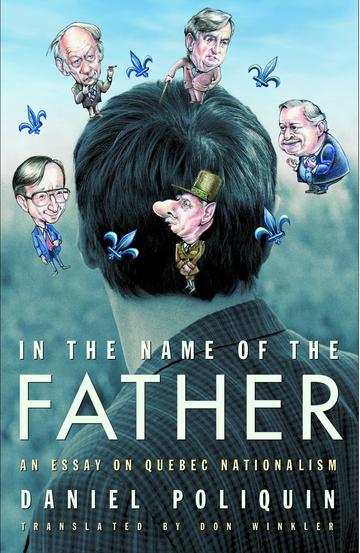About BC Books Online
BC Books Online was created for anyone interested in BC-published books, and with librarians especially in mind. We'd like to make it easy for library staff to learn about books from BC publishers - both new releases and backlist titles - so you can inform your patrons and keep your collections up to date.
Our site features print books and ebooks - both new releases and backlist titles - all of which are available to order through regular trade channels. Browse our subject categories to find books of interest or create and export lists by category to cross-reference with your library's current collection.
A quick tip: When reviewing the "Browse by Category" listings, please note that these are based on standardized BISAC Subject Codes supplied by the books' publishers. You will find additional selections, grouped by theme or region, in our "BC Reading Lists."
 Enlarge Cover
Enlarge Cover
Winner of the 2001 Shaughnessy Cohen Prize for Political Writing.
Daniel Poliquin's mordant, polemical essay-novel created a storm upon its publication in Quebec in the fall of 2000. Not only did this Franco-Ontarian take on every sacred cow of Quebec nationalism, he did it in an outrageous and extremely witty manner. Poliquin has created two fictional characters, M. Labine and M. Lesieur, who represent the federalist and sovereignist positions in Quebec. He has great fun analyzing and dissecting these men, especially M. Lesieur. In the process he lays bare what he sees as the nationalists' father complex and the underlying cartoonishness of their thinking.
Sacred cows such as the great martyr Lucien Bouchard, Hydro Quebec, de Gaulle's "Vive le Quebec Libre," and the Night of the Long Knives (the repatriation of the constitution) are skewered. Touchstone ideas such as the perilous position of the French language, the vacuousness of English Canadian culture and the irrelevance of any francophone living outside of Quebec are subject to hilarious and devastating attack.
In the Name of the Father is an extended tiff on the question of who is colonially minded -- the Quebecois who looks beyond his borders to understand the world, or those completely ignorant of the outside world? Is the book unfair? Possibly. Is it refreshing and a joy to read? Yes. Le Devoir calls the book "vengeful" and says it will "make you grind your teeth." But Poliquin is far from an enemy of Quebec. He supports Bill 101 and recognizes how important nationalism was in the emergence of Quebec from its oppression by the anglophone minority.
- Winner, Shaughnessy Cohen Prize for Political Writing


